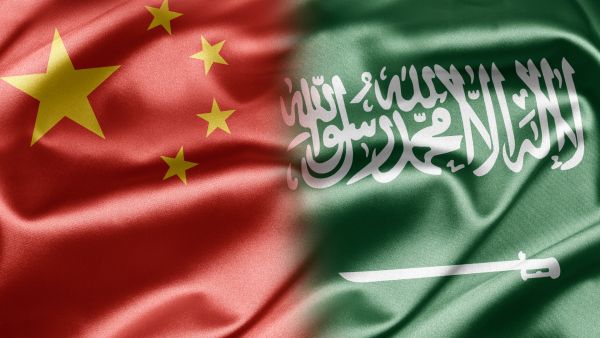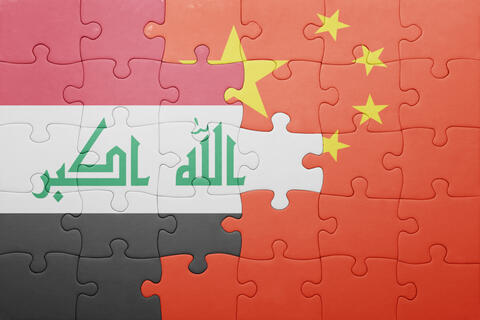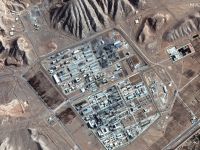By Farzad Ramezani Bonesh
Geopolitical and political opportunities for cooperation
Although, after World War II, challenges such as China's support for the Dhofar Liberation Front, Riyadh's relations with Taiwan, Saudi Arabia's negative vote to cede Taiwan's UN seat to the People's Republic of China, and so on, led to a stalemate in Beijing-Riyadh relations. Finally, diplomatic relations between Riyadh and Beijing were formally established in July 1990.
In fact, Saudi Arabia was the last country in the region to expand diplomatic relations with Beijing. But the course of bilateral relations led Beijing and Riyadh to sign a comprehensive strategic partnership contract in 2016 and later promoted it.
After the 1980s, China's policy toward the Middle East changed with the adoption of a policy of reform and openness to the world and peaceful development without conquest. In the meantime, China's policies towards the Arab countries changed to large cooperation with those countries.
Beijing's interests in the Persian Gulf and the Middle East also increased sharply as China's foreign energy needs increased. Bilateral meetings between the leaders and officials of the two countries in the last decade, such as the presence of Saudi Crown Prince Mohammed bin Salman in the Beijing Winter Olympics in 2022 has been on the rise.
Although Beijing says it is not trying to challenge US hegemony and replace the United States in the Middle East, China can use the turmoil in US-Saudi relations to seek opportunities to increase its power and become a global hegemon. In fact, Saudi Arabia could also be a facilitator and a gateway to China's growing role in the Middle East.
The Biden administration, meanwhile, is committed to change the direction of US Middle East policy. Approaches such as restraining China, shifting to East Asia, or reducing the Middle East's position with the United States have led China to pay more attention to relations with Saudi Arabia. In contrast, Sino-Iranian relations are of concern to Saudi Arabia. Therefore, Riyadh has developed its relations (like its neighbors) with China.
In addition, the polarization of the international system, the frequency of crises, and the role of the UN Security Council on Middle East issues, the need for a new strategy to rely less on the United States, and a balance in relations with major world powers have led Riyadh to give more attention to China.
China intends to use its relations with Saudi Arabia to reduce pressure on Beijing at the UN Human Rights Council and member states of the Organization of Islamic Cooperation. In fact, Saudi Arabia's positive attitude towards China's treatment of the Uighurs in Xinjiang, Hong Kong and Taiwan is a platform for increasing cooperation in the sphere of international organizations.
Opportunities for security and military cooperation
In fact, China is trying to show that in the rivalry between Tehran and Riyadh, it will not support either of them. It therefore seeks to support Riyadh's "legitimate" security concerns. However, China does not want a security role like the United States in the Middle East. But the United States is actively leaving the region. So it will be a major opportunity to sell Chinese weapons.
China is the third largest arms seller in the world. China's approach to arms exports to the region comes at a time when Saudi Arabia has always been a major customer of arms.
Also, after Washington's decision to restrict arms sales to Saudi Arabia and the risk of stopping arms sales due to the Yemeni war, Saudi Arabia's orientation towards China has increased due to taking advantage from expertise in the military industry. In this context, China is an old military supplier to Saudi Arabia, but in the last half decade, defense cooperation China has also developed.
Saudi-Chinese military relations have now expanded to include assistance to Saudi Arabia's missile and ballistic missile program, development of ballistic missiles, access to advanced missile systems, and deepening defense cooperation.
In addition, Saudi Arabia can help China in its policy of active military action, becoming a major power and establishing military bases in West Asia.
There are also reports of cooperation and nuclear activities between China and Saudi Arabia to produce yellow cake , which could expand Saudi Arabia's technological and nuclear capabilities.
In terms of security, Beijing seeks to combat terrorism, counter-terrorism cooperation with countries to establish a long-term security structure, political dialogue and the exchange of intelligence, cooperation and training to counter international threats. In this context, China and Saudi Arabia have pledged not to interfere in each other's internal affairs. Beijing is using its relations with Saudi Arabia to try to curb extremism in China's Xinjiang.
Economic Opportunities Relationships
After 30 years, the Sino-Saudi relationship has been highlighted with tens of billions of Chinese dollars invested in Saudi Arabia and trade volume of approximately $ 71 billion between the two countries (2019).
Saudi Arabia, with its vast oil reserves and massive crude oil exports, is a good opportunity for China to invest. Therefore, China, as a major consumer of oil, has tried to establish energy cooperation as the basis of bilateral relations. In 2019, Saudi Arabia became China's largest oil supplier with 1.67 million barrels per day.
The oil sector, meanwhile, accounts for 90 percent of Saudi Arabia's exports, and even Aramco has made energy supply to China a priority for the next 50 years. In this area, the cooperation between the two countries in the construction of refineries and petrochemical complexes in China, and energy projects in the two countries has expanded.
In addition, Riyadh aiming at diversifying economic partnerships and reduce dependence on Western companies, is taking into consideration cooperating with China in other areas such as trade, investment, infrastructure, nuclear power (plans to build at least 16 civilian nuclear reactors), renewable energies, chemical industries, etc.
Meanwhile, in line with the win-win approach, the two countries are trying to emphasize the importance of cooperation on the China’s ‘One Belt, One Road Initiative’ (BRI), the Saudi "Vision 2030" document, Saudi Arabia's presence on the China Stock Exchange and the Asian Infrastructure Investment Bank (AIIB).
In this regard, Saudi Arabia (as the largest economy in the region) is trying to increase the volume of bilateral relations by more attracting China in the sectors of infrastructure, tourism, $ 500 billion Neom smart city and Saudi’s renewable energy project ($ 200 billion).
In addition, China's assistance could play an important role in Saudi Arabia's efforts to reach a regional and global logistics hub, increase its non-oil GDP, and turn the country into a global trading hub.
Cultural areas
In the last decade, with the increase of Chinese citizens working in Saudi Arabia, the presence of Saudi students in China, the teaching of Mandarin in some Saudi schools, cultural cooperation and exchange of human capital between the two countries has accelerated.
In addition, the ‘COVID diplomacy, and offering of vaccines and medical equipment to Saudi Arabia were new dimensions of new cooperation between the two countries.
Perspectives on relationships
What is clear is that energy and economic cooperation is the cornerstone of the strategic relationship between China and Saudi Arabia. However, the conditions of the international system, the reduction of the US presence in the region and the big goals of the two countries will increase the interest of the two countries in the development of high-level political, strategic and military talks along with the development of trade.
In fact, it should be said that the expansion of economic cooperation should be a platform for the development of cooperation in other areas of culture, strategy, military, security and defense.









